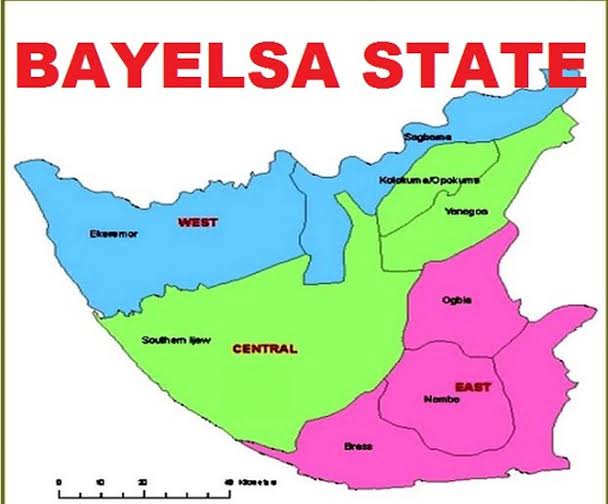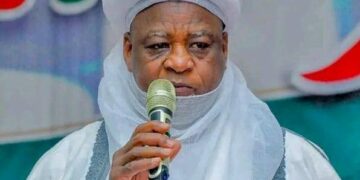As the Governorship election in Bayelsa State draws nearer, and the key political actors gear up to rally the highest number of people to their cause, analysts of all shades and persuasions have picked up their crystal balls to try and predict which way the voting pendulum will swing. Though the political atmosphere has been relatively quiet and peaceful, the major political actors have been working behind the scenes to outwit each other and position their interests as best suited to the aspirations of the people of the state.
Even though in every democratic system the voting populace are the ultimate arbiter, the vehicle through which candidates are able to reach the people are political parties, as independent candidature is still unknown to Nigerian law. The closest we have had to independent candidate is the former Anambra state governor Peter Obi and his Obidient movement, who polled 6million votes at the presidential election whereas his Labour Party couldn’t replicate those numbers at the Legislative and state elections.
The team lead of Cell-Hub, a data mining and analysis organization with interest across Africa, Mohammed Basha said their organisation carried out a statewide assessment of the critical factors that drive elections in Bayelsa state, using both historical, contemporary and emerging data sets. Being a “juicy state”, with massive oil and gas reserves, situate in Nigeria’s Niger Delta region, elections are usually a keenly contested affair with elections bringing a tense atmosphere.
Mohammed said “based on Cell Hub’s data, this piece is a review of one of the critical factors that will determine who carries the day come November 11th 2023, when gubernatorial election is scheduled to take place”.
In these parts of the world politicians usually have a tenuous relationship with political parties, but they never lose consciousness of the fact that parties are the vehicles that can propel them to power and this fact was reflected in our data which showed that political parties will play a major role in deciding who becomes the next governor of Bayelsa state.
The Labour Party’s Udengs Eradiri had put forward his People, Education, Agriculture and Power (PEAP) agenda, while the All Progressives Congress’ Timipre Sylva also outlined his six-point agenda during a visit to President Bola Ahmed Tinubu at the Presidential Villa in Abuja.
Cell Hub’s research shows the incumbent Governor Douye Diri of the PDP and former Governor Timipre Sylva to be the forerunners, while the Labour Party candidate struggles to rouse the remnants of the Obidient Movement from the last general elections.
Cell-Hub’s surveys were carried out, in two phases, among registered members of the two major contending political parties as well as nonpartisan citizens of the state to measure their perception of both parties.
In the symphony of factors that win an election in an election, the commitment of members to the cause of the party and its candidate, emerges as a pivotal determinant in swaying the tide of electoral outcomes.
A journey through history shows that in 2015 the former governor of the state on the platform of the PDP had defected to the then newly formed APC, which went on to wrestle power form the PDP at the federal level and a number of states.
Whereas in 2012 the PDP won the election by a landslide margin of 89% of votes cast, in 2015, the party got 60% of votes cast, after the elections went into rerun following threats of violence.
In 2019, deepening of internal squabbles further decimated the ranks of the PDP, led to a win for the APC that polled about 71% of votes cast. Save for the last-minute nullification of the candidature of the APC Deputy Governor Elect, Senator Degi Eremienyo, the PDP would have been ousted from power for the first time in the history of the state.
A post mortem on that election cycle shows that the PDP had a low level of commitment of its members, due to disenchantment towards the then governor of the state, Chief Henry Seriake Dickson, which robbed off on the chosen candidate of the party.
Clearly a large number of those PDP members that remained, after some had openly defected to the APC, chose to commit political suicide by, either being nonchalant to mobilize votes for their party or even in some cases working for the opposition.
Committed party members form the bedrock of ground-level campaigning, engaging with communities, conveying the party’s policies, and rallying support, for the success of their party’s candidate.
The 2023 elections come at a time when the global, national and local economy is experiencing multiple layers of stressors with profound impact on the lives of the average Bayelsa indigene and resident alike, which means the political parties have their work cut out in breaking down the visions and antecedents of their candidates in the language currency of the people.
Following the passing of the most recent amendment of the electoral act in 2022, which extended the window of campaigns from 3months to six months before elections, the new trend of campaign activities not picking up has been noticeable in Bayelsa state.
Save for a smattering of billboards, mainly concentrated in Yenagoa the state capital, the level of visible campaign activities has been quite low on both sides of the political divide, with the usual behind-the-scenes consultations, reconciliation, alignments and realignments that characterize the marathon that is political horse trading.
Cell-Hub’s research took a critical look at the party structures in the state due to the fact that party members enthusiasm or lack thereof, have a ripple effect on how the people perceive such parties and the extent to which the populace would defend their voting choices from manipulation.
Cell Hub’s surveys revealed that the PDP is a more united front than it was in 2019, owing to the power of incumbency coupled with reconciliation efforts of Gov. Douye Diri, which gave him an 80% acceptability rating among PDP members.
The APC on the other hand seems to suffered a reversal of fortunes from 2019 as Cell-Hub surveys showed a widening of existing cracks and opening of new ones, with members’ responses showing an acceptability rating of 31% for their candidate.
In a reversal of fortune, in this election cycle, 69% of APC members ranged from being lukewarm to their party’s candidate to being unfavorably disposed to the cause of the party at the current time, owing to the person and history of their party’s candidate. Our surveys also showed that the PDP has a grassroots penetration and presence metric of 63% compared to the APC with 30% whereas the other political parties have 7%, which makes PDP the more established party at this time in Bayelsa state.
Clearly political gladiators in the state have their work cut out for them in growing & cashing in on their strengths, while minimizing their weaknesses, leading up to election day.
Presently, the PDP appears to have its house in order and its hands on the pulse of the people, who have the final decision on the fate of the candidates.
Cell-Hub will continue to monitor the situation and present other aspects of its data mining reports and analyses on the current state of Bayelsa to the public. It is still early days, as even “a week is a long time in politics”, there are bound to be several twists and turns in the coming days, as happens in every election cycle.
We’ve got the edge. Get real-time reports, breaking scoops, and exclusive angles delivered straight to your phone. Don’t settle for stale news. Join LEADERSHIP NEWS on WhatsApp for 24/7 updates →
Join Our WhatsApp Channel










